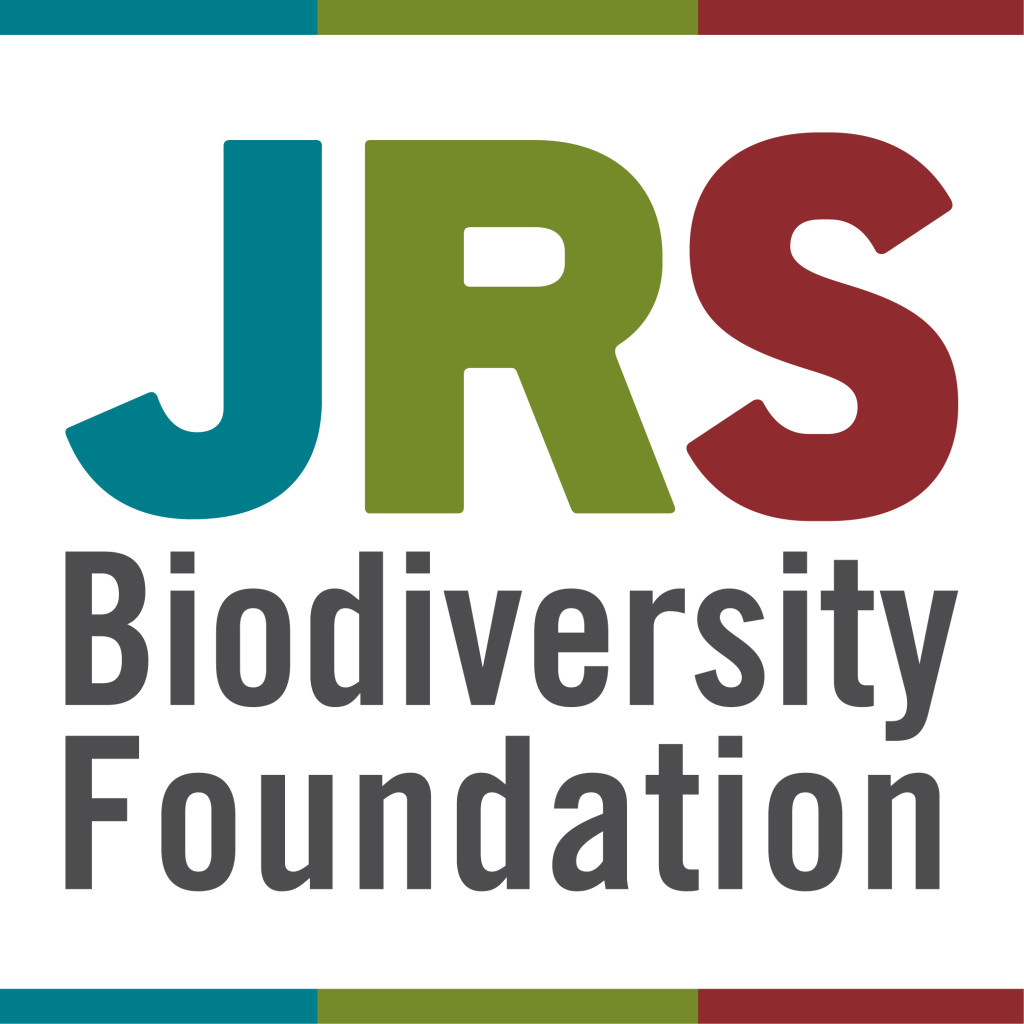2020 Request for Proposals
The JRS Biodiversity Foundation is issuing a Request for Proposals (RFP) for multi-year projects focused upon biodiversity data, knowledge and information services related to (1) freshwater biodiversity, (2) pollinator biodiversity, and (3) biodiversity informatics capacity development. The foundation will award about 1.6 million U.S. dollars among qualifying proposals by July 2020. Please write to jrsrfp@jrsbiodiversity.org with any questions. Please see JRS 2020 Request for Proposals and 2020 RFP Frequently Asked Questions.
The JRS Biodiversity Foundation
Our mission is to increase access to and the use of information for biodiversity conservation and sustainable development in sub-Saharan Africa. Since 2007, the foundation has invested more than $20 million in biodiversity informatics projects to (1) collect and enhance data, (2) aggregate, synthesize, and publish data, (3) make data more widely available to potential end-users, and (4) inform biodiversity conservation.
The JRS Biodiversity Foundation strategy is to connect data to knowledge use in domains where the demand for information can sustain investment in biodiversity informatics. The J.R.S. Biodiversity Foundation focuses our pollinators- and freshwater-related grantmaking in Botswana, Kenya, Malawi, Rwanda, South Africa, Tanzania, and Uganda. We may make exceptions to this policy for projects elsewhere in Africa with the potential for exceptional impact upon biodiversity informatics capacity development or highly transferrable models or technologies.
Please Ask Us Questions
We encourage you to contact us with questions regarding how well your project fits this RFP scope. Inquiries or short concept notes are welcomed by email or via our online forms. Please see our Grantmaking Basics for a list of what we do not fund.
General Qualifications
We seek projects that address issues at a substantive spatial scale, can grow to a larger scale or can be transferred across geographic regions or organizational and institutional contexts. Projects that hold potential to engage with, reinforce, or build upon the results or technologies of our grant portfolio will be preferred. Applications that demonstrate a strong demand for data and ties to decision-making will be most competitive for JRS Biodiversity Foundation funding. All projects must conform to the foundation’s Open Data Policy. U.S. law prohibits our financing of projects to influence legislation through advocacy or lobbying (see JRS Grantmaking).
Requirements
The following conditions ensure that your proposal aligns with the JRS Biodiversity Foundation’s strategy and may be used as an eligibility checklist.
- The biodiversity information system is at the center of the project, and there is a clear potential use of and future value to the datasets or technologies.
- The end-users of the biodiversity information are known and are directly involved in proposal development and project implementation.
- There are specific descriptions of hardware, software, data standards, and related technical tools, and their choice is justified; use of existing biodiversity informatics solutions and infrastructure is preferred.
- All primary biodiversity data and tools generated by the project will be available per the Open Access Data Policy and its terms for license, timeliness, standards, access, and compliance.
- The grant applicants are African or that African professionals and African institutions play significant roles in project design, implementation, and sustainability, and as recipients of funds for projects that originate outside of Africa.
- Training and capacity development in biodiversity informatics are explicit aims of the project through engagement with trainees, network-building, and sharing of training resources.
- Outputs and outcomes have specific targets that are measurable and time-bound.
- Plans for outreach include efforts to secure future partners and funders.
- Budgets are justified in significant detail regarding cost assumptions, timing, and rationale.
Types of Proposals: The total requested grant for 1-3 years may range from about $50,000 to about $250,000. We will accept two types of proposals: 1) proposals for multi-year projects and 2) proposals for co-funding of biodiversity information components of existing projects.
Application Process: All proposals that comply with the application guidelines will be considered. All proposals must be submitted using the online system. Proposals will not be accepted after March 10, 2020.
2020 Timetable for Applications:
- January 7: Grant application portal opens.
- March 10: Deadline for submission of proposals.
- April 24: Requests, if needed, to applicants for supplementary information.
- May 7: Deadline for submission of supplementary information, if requested.
- June 2: Funding decision communicated by the Foundation.
- August 1: Approximate date of the first payment to grantees.
Letters of Inquiry: We strongly encourage applicants to email ideas or project summaries to jrsrfp@jrsbiodiversity.org or to use the feedback functions in the application form. This is a challenging domain and we are happy to exchange ideas to support successful proposals.
Thank you in advance for your interest. Please write to JRSRFP@jrsbiodiversity.org with any questions regarding this request for proposals.

